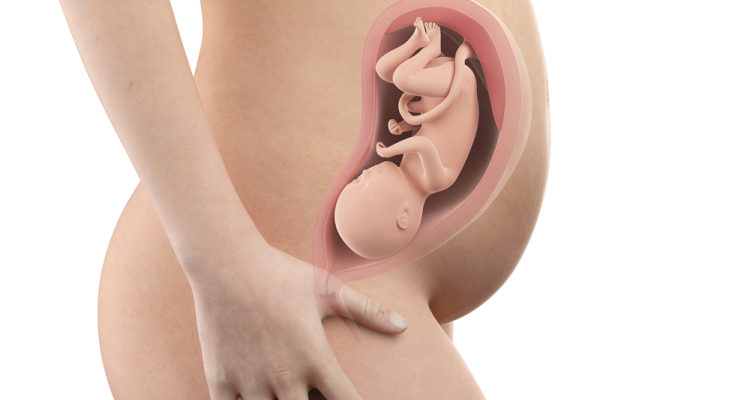
Main content:
Development of 31 weeks fetus
A change in the mother's body at 31 weeks of pregnancy
Doctor's advice about 31 weeks pregnancy
Maternal and fetal health at 31 weeks
Development of 31 weeks fetus
31 week old fetus develop like?
Baby will now be the size of a coconut, weighing about 1.5 kg and 40 cm longer from head to heel.
By the time the fetus is 31 weeks old, the baby will be discharging more than 250 ml of urine each day into the amniotic fluid. Your baby also swallows amniotic fluid but the amniotic fluid will be completely changed several times a day. If excess fluid in the amniotic sac will prevent the baby from swallowing normally, the mother is having a digestive tract obstruction. Not having enough water in the amniotic sac will prevent the baby from urinating properly, indicating a problem with the kidneys or urinary tract. Your doctor will measure the level of your mother's amniotic fluid during a pregnancy ultrasound .
A change in the mother's body at 31 weeks of pregnancy
31 weeks pregnant, how does mother's body change?
Many women through 31 weeks of pregnancy feel uterine muscles sometimes tighten, which is possibly Braxton Hicks contractions that usually occur in the second half of pregnancy. They occur infrequently, usually last about 30 seconds and are painless. On the other hand, frequent spasms, even if they don't hurt the mother and baby, can be one of the signs of preterm birth . Call your doctor right away if you have more than four contractions in an hour or any other signs of preterm birth such as: an increase in vaginal discharge or a change in discharge (if it becomes liquid, slime-like or bloody - even if it's just pink or just bloody), stomach cramps or cramps like menstrual crampsa feeling of increased pressure in the pelvic area or lower back pain, especially if you haven't had these signs before.
By 31 weeks fetus, the milk glands in the mother's chest begin to work to make colostrum. Colostrum is the initial milk that gives your baby calories and nutrients for the first few days before the mother has milk and if she is planning to breastfeed . Some mothers at 31 weeks of pregnancy have colostrum very thin and water-like, while others' colostrum is thick and yellow in color. If you find that your breasts are leaking colostrum, you can buy disposable or washable breast pads to protect your clothes from getting wet.
What are the things you need to pay attention to?
To meet the needs of pregnancy, a mother's body makes more blood than usual and her heart pumps blood faster. Unfortunately, changes in the mother's circulatory system to support the development of the fetus can cause some new and unpleasant side effects for the mother. As mother's veins become larger to accommodate increased blood flow, they can protrude and the mother may notice bluish or red blood vessels below the surface of her skin, especially on her legs and ankles. mother's foot.
Doctor's advice about 31 weeks pregnancy
What should mom discuss with the doctor?
In the last trimester of pregnancy, especially at 31 weeks of age, the mother has another bladder problem, a symptom of incontinence due to increased pressure in the abdomen. You will have difficulty controlling your bladder causing urine to leak when you cough, sneeze, lift something heavy or even laugh. To make sure you are leaking urine that is not amniotic fluid, smell it. If the liquid does not smell ammonia like urine but has the sweet smell of amniotic fluid, tell your doctor right away!
What tests do you need to know?
This could be the last monthly mother's checkup. Beginning the next month, mom will see the doctor more often, every two weeks at first, and then once a week until the baby is born. With a 31-week pregnancy, during this follow-up visit, the doctor will check the mother's blood pressure and weight and ask her about any signs and symptoms she may be experiencing. Your doctor may also ask moms to describe your baby's movements and activity schedules: when the baby is active and when the baby is quiet. As with other prenatal visits, the doctor will monitor the baby's development by measuring the size of the uterus during pregnancy .
Maternal and fetal health at 31 weeks
What do you need to know to ensure safety during pregnancy?
When the fetus is 31 weeks old, a lot of walking can be good for your health. However, to ensure safety, mothers are not encouraged to go too far or carry heavy objects.
If the mother has anterior placenta - where the placenta closes in the lowest part of the uterus or cervix, the mother should not run too much because the jolts can cause the mother to bleed. Running too much is also not safe if the mother has high blood pressure during pregnancy or is at high risk of preterm birth.












